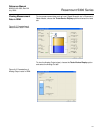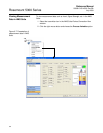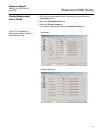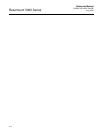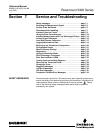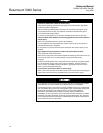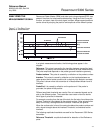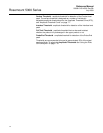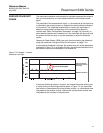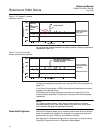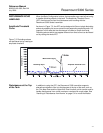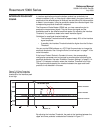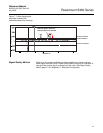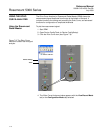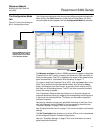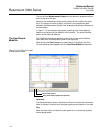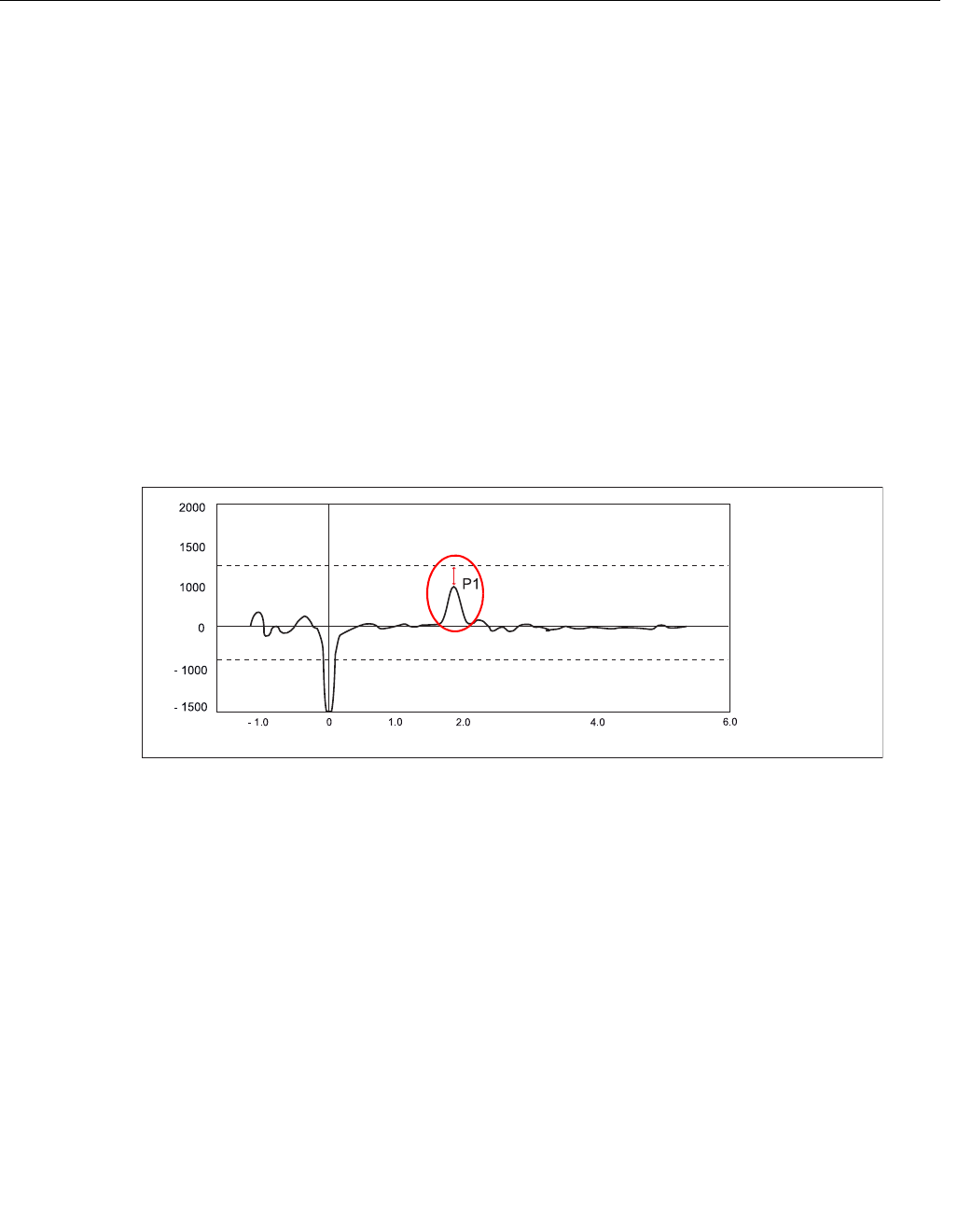
Reference Manual
00809-0100-4530, Rev BA
July 2009
7-5
Rosemount 5300 Series
SURFACE PULSE NOT
FOUND
The amplitude thresholds are automatically adjusted to appropriate values to
filter out noise and other non-valid measurements from the measurement
signal.
The amplitude of the measurement signal, i.e. the amplitude of the signal that
is reflected by the product surface, is related to the actual dielectric constant
of the product. The amplitude threshold that is used by the transmitter is
based on the parameter configuration of the current product dielectric
constant (see “Basic Configuration Parameters” on page 5-4). Normally no
other threshold adjustment is needed, but if the transmitter still does not track
the product surface correctly, it may be necessary to adjust the threshold
values.
Rosemount Radar Master (RRM) has a plot function showing the reflections
along the probe (see “Using the Echo Curve Analyzer” on page 7-10).
If the amplitude threshold is too high, the product level will not be detected as
illustrated in Figure 7-2. In a situation like this, the amplitude threshold has to
be lowered so that the Surface peak is not filtered out.
Figure 7-2. Example 1: surface
threshold is too high.
If there are disturbing objects in the tank, the threshold must be carefully set
to avoid locking on the wrong amplitude peak. In Figure 7-3, the transmitter
has locked on a peak above the actual product surface, i.e. a disturbance was
interpreted as the product surface, whereas the actual product surface was
interpreted as the interface or the probe end.
3.0 5.0
The Surface Threshold is
above the Surface peak
Surface Threshold=
Amplitude Threshold
Curve (ATC)
Reference Threshold
Amplitude, mV
Distance, m



